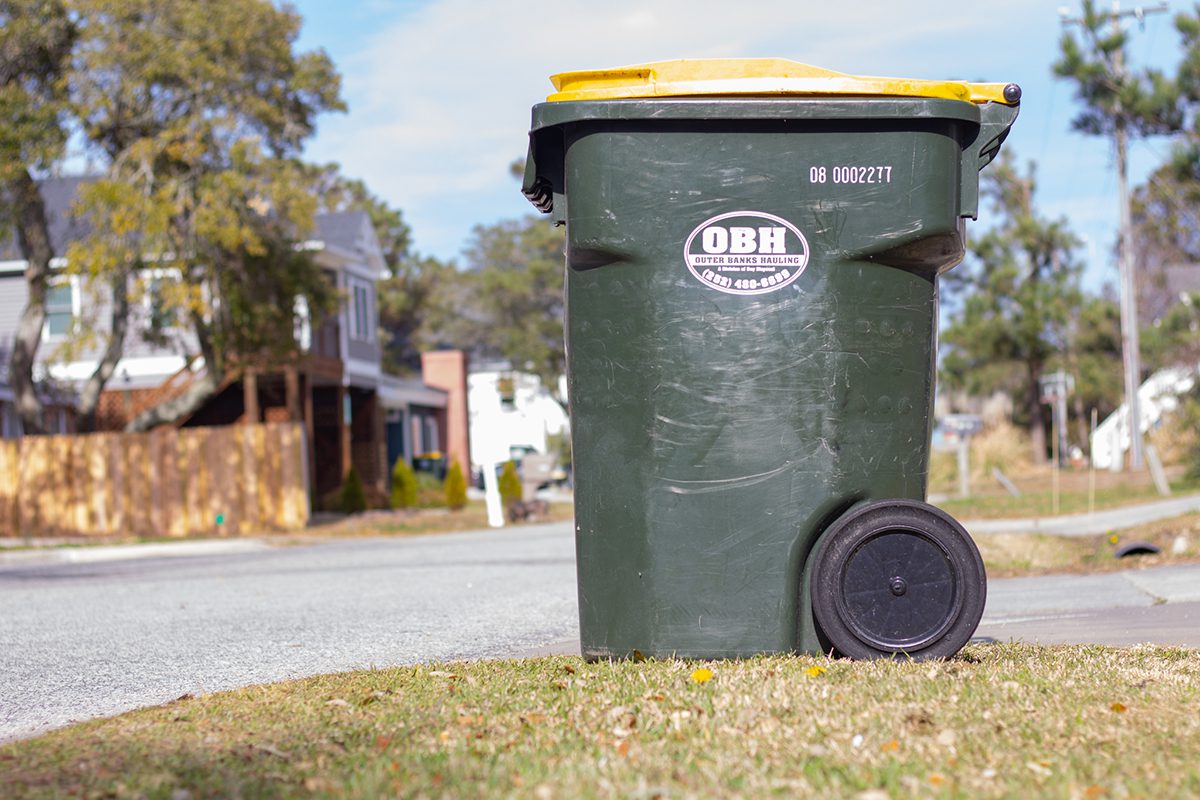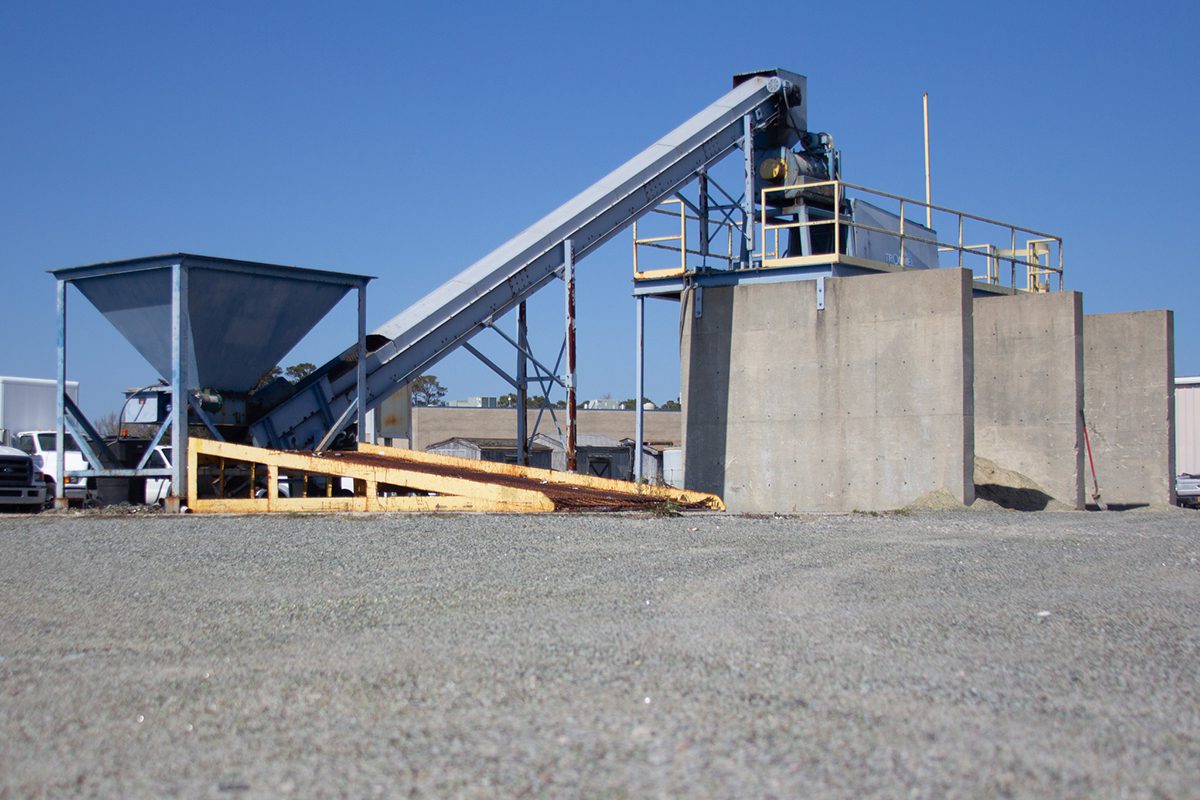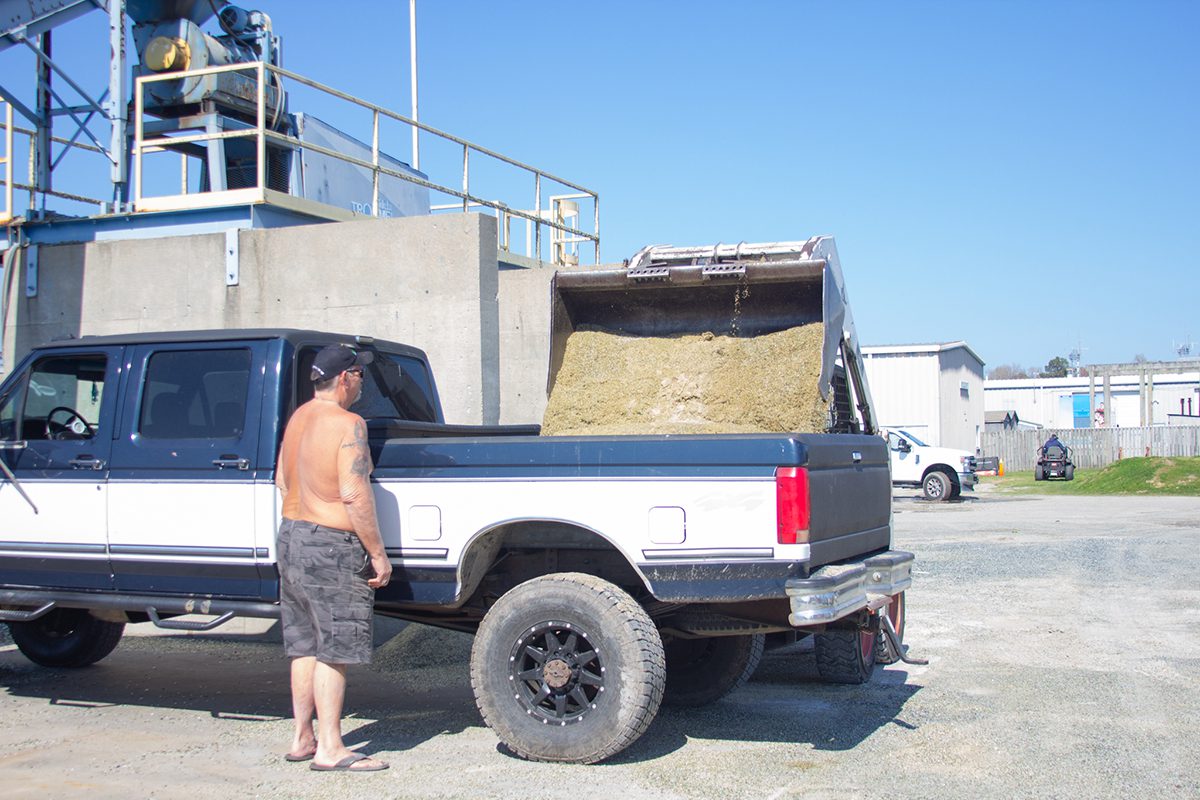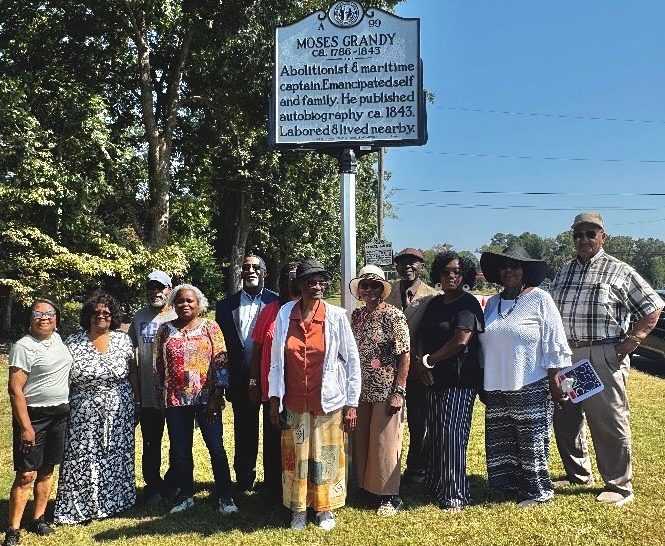
Sorting out recycling can be a tricky process.
Currently, recycling professionals say the commodity markets — where recyclables are sold — are stable, so everything that can be recycled is achieving that goal.
Supporter Spotlight
But on the Outer Banks, the past several years have been tumultuous for recycling.
Officials and residents in Southern Shores, Kitty Hawk, Kill Devil Hills, Nags Head and Manteo learned in early 2020 that recyclables leaving Dare County through Bay Disposal & Recycling were actually being burned at a waste-to-energy plant, Wheelabrator, in Portsmouth, Virginia. They faced a dilemma: Should they continue recycling?
Nags Head opted to switch in March 2021 to the recycling provider with which Duck had contracted since 2005, Tidewater Fibre Corp., also known as TFC Recycling.
The Nags Head Board of Commissioners when it met March 1 approved TFC’s 73-cent rate increase. Homeowners contract directly with TFC and now pay $10.33 per month.
The town pays $5 per month per household of TFC’s total $15.33 fee “to encourage recycling,” according to Nags Head Public Information Officer Roberta Thuman. The number of subscribers increased over the first year and is now steadily around 900.
Supporter Spotlight
Manteo, meanwhile, chose to end its townwide curbside recycling program in January 2021, according to Emmett Moore, district manager for Bay Disposal. He noted that individual residents can still contract directly with the company for recycling services, as some Kitty Hawk residents do, absent a townwide curbside recycling program.
Kill Devil Hills continues its residential recycling franchise agreement with Bay Disposal, a contract in place since 2008. Residents who opt into the program pay $13.20 per cart per month, according to Public Services Director Steve Albright. Subscribers have increased from 950 to about 1,060 over the past several years.
Southern Shores also continues to contract with Bay Disposal for curbside recycling, but residents don’t pay out of pocket for the service, instead it is included in their taxes. “This is a service that our property owners expect,” Town Manager Cliff Ogburn said in an email.
Duck has a similar program, but with TFC.
“No separate fee is collected for recycling services as it is included in property taxes,” Public Information and Events Director Kay Nickens said in an email, explaining that TFC provides each home in Duck with a recycling container.
A LOOK BACK: COVID-19 and the Waste Stream, a special reporting series
Formerly known as Outer Banks Hauling, Bay Disposal operated its own material recovery facility — sorting, baling and marketing the various recyclables it collected — until fall 2018.
Commodity markets took a dive and left the company, which was acquired by Waste Connections in early 2018 but still operates under the same name, scrambling and asking for a rate increase.
“Recycling commodity values have dropped to a point where we have been forced to close our recycling processing facility and deliver the material to a third-party vendor at a rate of $75.00 per ton (transportation and processing),” Moore wrote in his Nov. 30, 2018, letter to town officials in Kill Devil Hills.
While the vendor wasn’t named, records show that Bay Disposal was taking materials to TFC. But by early 2020, all recyclables Bay Disposal collected were going to Wheelabrator.
A Jan. 16, 2020, letter from Joshua Smaltz, then-Outer Banks site manager for Bay Disposal, advised Kill Devil Hills officials that the company had the capability to take materials to TFC instead of Wheelabrator, if the board so chose, but the cost would “nearly double.”
Bay Disposal was still taking all materials to Wheelabrator as of April 21, 2020, according to a follow-up letter from Smaltz.
In March 2022, Albright questioned where recycling was going, and a new site manager, Pamela Stine, said most of it was being recycled at RDS, a facility in Portsmouth, Virginia.
“As we continue to educate the community and our customers on proper recycling, we continue to be able to increase the amount of clean recycle we take to RDS,” Stine wrote in an email dated March 8, 2022.
Stine wrote that of the recycling collected in February 2022, 70% was “clean enough” to go to RDS, with the remaining 30% of “contaminated recycling” going to Wheelabrator.
Bay Disposal had yet another Outer Banks site manager by mid-2022, who currently holds that title.
Jeremy Savage told Coastal Review that he’d relocated to the area seven months ago.
“Ever since I’ve been down here, the market’s been good. We’ve been taking 99% of our stuff to RDS,” he said.
“If RDS closes on us for a couple days, we kind of just hold onto our recyclables (until they reopen, and then) we bring it up to them,” Savage said. The facility has a large loading area, and if it becomes full of material to the point that equipment can’t maneuver, the area must be cleared out before they accept more material, he explained.
Kill Devil Hills and Kitty Hawk each operate a drop-off recycle center, where residents without curbside service can take and sort their own recycling. Nags Head has two unattended drop-off recycling locations. Dare County Public Works operates a recycle center in Manteo and keeps mobile bins in Wanchese, Stumpy Point, Rodanthe and Buxton, which can be used by both county residents and visitors.
Bay Disposal hauls items such as cans, plastics and paper from the Manteo facility, where all county recycling is brought.
But the county also accepts used tires, which go to a facility in Cameron to be converted into a soft surface material for playgrounds and football fields, used vehicle motor oil, which it sells to Noble Oil. It sends scrap metal and appliances like lawnmowers and refrigerators to Dare Area Recycling Technologies, or DART, in Wanchese, said David Overton, sanitation and recycle supervisor for the county.

Dare County sells its cardboard directly from that facility to a buyer in Suffolk, Virginia.
Glass from all over Dare County — 36 to 42 tons annually from restaurants, businesses, mobile bins and individuals — comes to the Manteo facility, where a glass crusher has been used for more than 25 years, according to Overton.
There are two bays below the machine for the two products the machine churns out, landscaping pebbles and sand. Both are made available free to residents, who must visit the facility to pick it up. Calling ahead to confirm availability is encouraged. Overton said people often use the glass pebbles for landscaping, for jewelry and for art.

But on March 7, all the pebbles were gone, as one Roanoke Island man was filling his truck bed with sand to use as fill on his driveway.
“If recycling doesn’t take place, at some point, we’re going to run out of places to put our trash,” Overton said. “That’s why it’s necessary to recycle. If you dig a hole and you keep putting dirt in it, after a while it’s going to fill up. It’s kind of simple.”
The recycling leaving Dare County through either Bay Disposal or TFC ultimately ends up at a facility owned by members of the same family.
Michael Benedetto owns TFC Recycling in Chesapeake, Virginia. His brother, Joe Benedetto III, owns RDS.
Joe Benedetto III’s biographical information on the RDS website says he is “a third-generation member of the recycling and solid waste industry and has worked in and around recycling facilities his entire life.”
Their family has been in the business since the 1800s, according to Kathy Russell, a community and outreach education staff member at TFC. She confirmed they are brothers.
TFC is celebrating 50 years in business and has well-established relationships with recycling markets, Russell said; while “RDS is not nearly as old.”
At TFC, everything but fibers (meaning paper) is recycled in markets in the U.S. “There are just not enough paper mills in the U.S.,” Russell said. But being close to ocean ports, TFC can easily ship its paper recycling internationally to countries including India, Indonesia and Mexico.
She encourages people to only recycle clean paper and empty bottles and cans. Recyclables are only truly recyclable if there is a market for them. In a perfect world, manufactures would only use packaging materials for which there is a market, she stated.
But as it is, people should never put items such as plastic wrap and plastic bags in recycling bins. Those can cause machines to jam. Only special programs — such as those some grocery stores operate — accept plastic bags.
For his part, the most frequent nonrecyclable items Savage regularly sees are lithium batteries and pizza boxes.
Any paper or cardboard with food residue is trash, he noted; and people should take lithium batteries directly to landfills.
“Those cause major fires for our trucks and our loads,” he explained.
To learn exactly what is recyclable, recycling professionals encourage people to contact their town, county or recycling provider.
For more information, visit www.darenc.gov/departments/public-works/recycling; https://tfcrecycling.com; https://rds-virginia.com; or www.wasteconnections.com.







